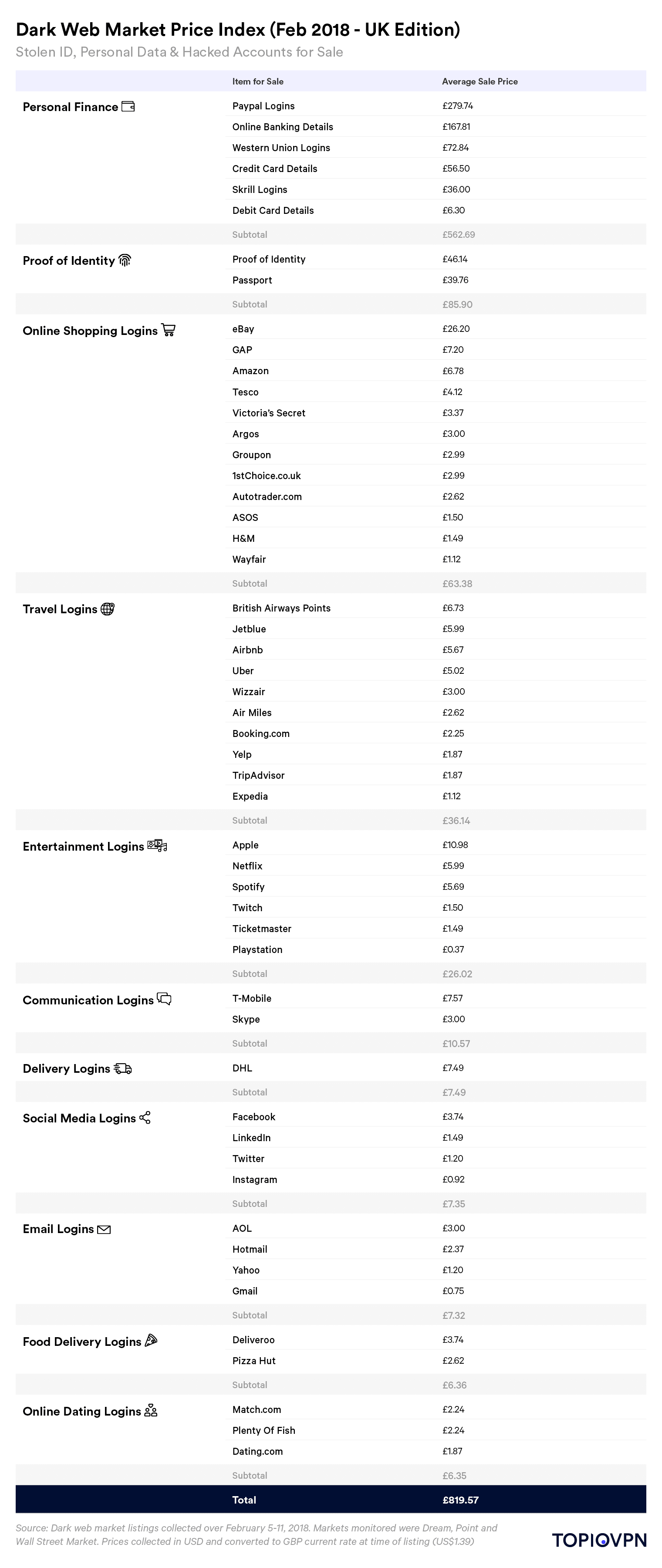Your entire online identity could be worth little more than £800, according to brand new research into the illicit sale of stolen personal info on the dark web (or just $1,200 if you are in the United States, according to the US edition of the index). While it may be no surprise to learn that credit card details are the most traded, did you know that fraudsters are hacking Uber, Airbnb, Spotify and Netflix accounts and selling them for little more than £5 each?
Everything has a price on the dark web it seems. Paypal accounts with a healthy balance attract the highest prices (£280 on average). At the other end of the scale though, hacked Deliveroo or Tesco accounts sell for less than £5. Cybercriminals can easily spend more on their lunchtime sandwich than buying up stolen credentials for online shopping accounts like Argos (£3) and ASOS (£1.50).
The average person has dozens of accounts that form their online identity, all of which can be hacked and sold. Our team of security experts reviewed tens of thousands of listings on three of the most popular dark web markets, Dream, Point and Wall Street Market. These encrypted websites, which can only be reached using the Tor browser, allow criminals to anonymously sell stolen personal info, along with all sorts of other contraband, such as illicit drugs and weapons.
We focused on listings featuring stolen ID, hacked accounts and personal info relevant to the UK to create the Dark Web Market Price Index. We calculated average sale prices for each items and were shocked to see that £820 is all it would cost to buy up someone’s entire identity if they were to have all the listed items
Source: Dark Web Market Price Index (Feb 2018 – UK Edition) | Top10VPN.com

